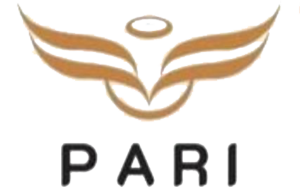Elections and US Diplomatic Activities in Jammu and Kashmir

Amidst constitutional and legal amendments, Jammu and Kashmir is witnessing historic assembly elections in three phases for the first time at the Union Territory (UT) level. Following the new delimitation, the Jammu and Kashmir Assembly’s constituency has been revised from 111 to 119 seats. Out of these, 90 seats will be contested directly by candidates, while 5 will be filled through nominations. Additionally, 24 seats have been reserved for Pakistan-Occupied Kashmir, in line with India’s stance on the region’s history and the government’s approval.
The government of India has resolved that Pakistan-occupied Kashmir is an integral part of India, to be recovered in due course. However, this is a topic for another time. Our focus is on the ongoing assembly elections, characterized by political upheaval, uncertainty, and the quest for power. As political and electoral activities gain momentum in Jammu and Kashmir, candidates from various parties are actively campaigning to secure the public’s mandate and claim the coveted seat of power.
Meanwhile, American diplomats have also made their presence felt in the region. On August 26, National Conference spokesperson Tanveer Sadiq announced on social media that a US delegation met with Vice President Omar Abdullah at his Gupkar residence. The delegation consisted of Counselor for Political Affairs Graham Meyer, First Secretary Gary Applegarth, and Political Counselor Abhiram. National Conference MP Agha Syed Ruhullah Mehdi and spokesperson Tanveer Sadiq were also in attendance. During the meeting, the delegation discussed the current political situation in Jammu and Kashmir, recent developments, and the upcoming assembly elections, as well as broader regional issues.
Following this, the People’s Conference released a statement revealing that a three-member US delegation met with their President, Sajjad Lone, on Tuesday. The delegation, comprising First Secretary Gary Applegarth and Political Counselor Abhiram Ghadyalpatil, met with Lone at his residence, discussing various issues. According to officials attached to the US delegation, these meetings with political leaders in Kashmir are part of a ‘routine outreach program’ aimed at assessing the ground situation in the former state.
The US delegation also met with former Srinagar Mayor Junaid Mattu, and although the details of their other meetings have not been publicly disclosed, it is reported that they met with various political and non-political personalities. The visit by the US embassy delegation, led by Political Affairs Minister Graham D Mayer, First Secretary Gary Applegarth, and Political Counselor Abhiram Ghadyalpatil, comes at a significant time – Jammu and Kashmir’s first assembly elections in almost a decade, and the first since the abrogation of Article 370 and the region’s division into two centrally administered parts. The diplomats’ activities during this election process have raised several questions: Are they attempting to influence the assembly elections in Kashmir? Is the US seeking to establish a presence in Kashmir? Are they laying groundwork in Jammu and Kashmir before the new government takes office? These questions demand answers.
The Election Commission of India must take strict notice of foreign diplomats’ meetings during the election process, as ensuring fair, free, and impartial assembly elections is its constitutional mandate. Such activities are not permissible during this time, and any interactions should be postponed until after the formation of the new government. This will prevent any suspicion that external influences have compromised the election’s integrity, thereby undermining the democratic system of independent India.
By Rashid Rahil
[email protected]

Leave a Reply
Want to join the discussion?Feel free to contribute!